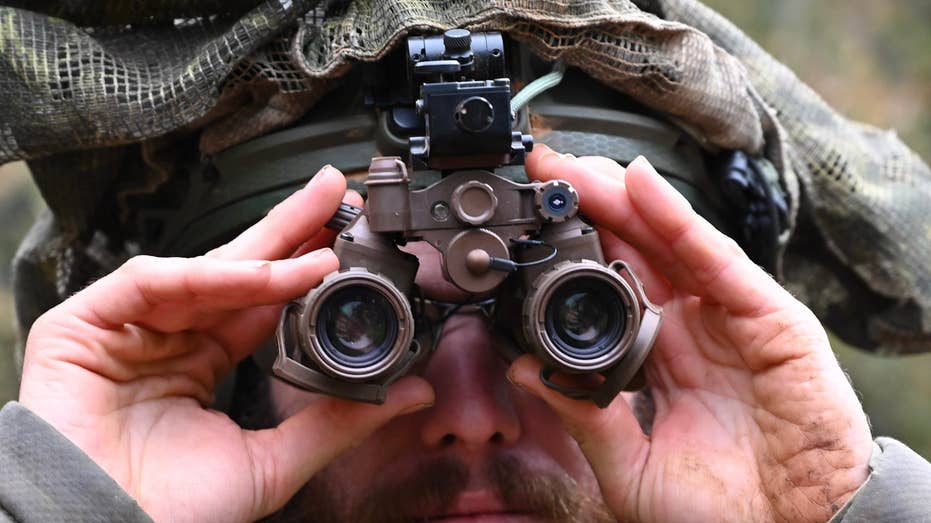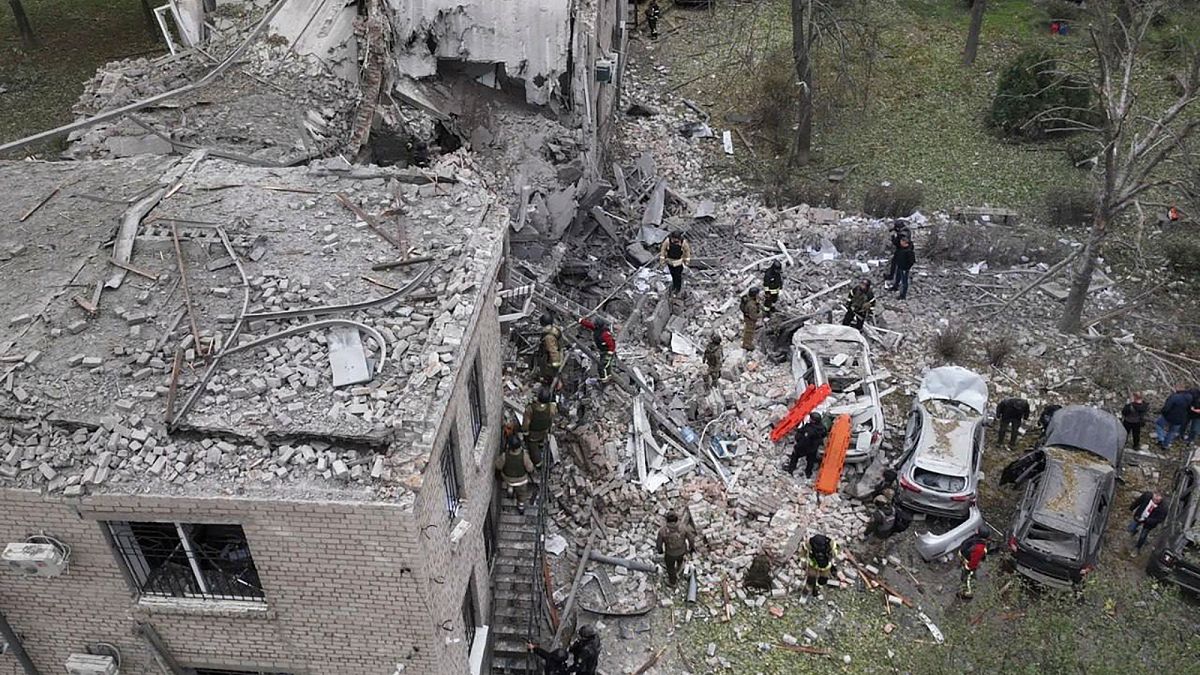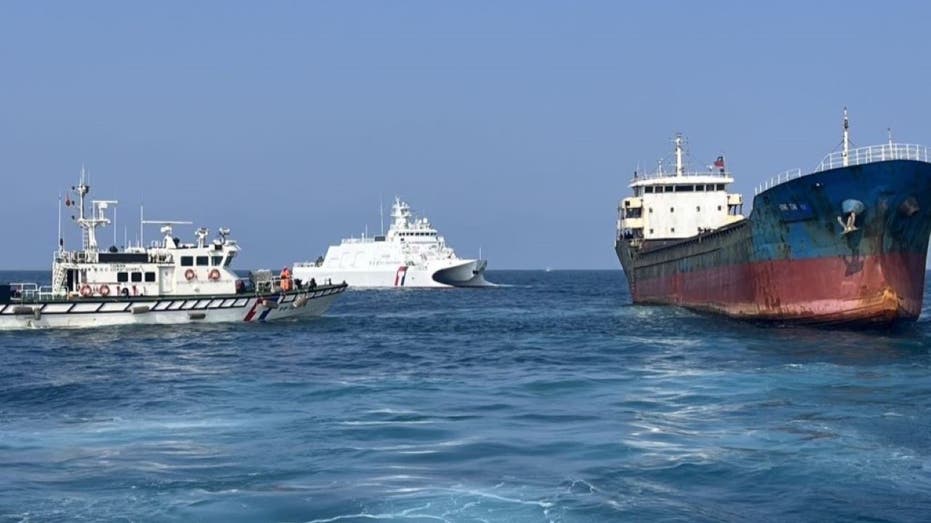Odds of Israel-Hezbollah war 'inevitable,' experts fear: 'Totally pessimistic'
U.S. and French mediators are working furiously to find a peaceful solution to prevent a war between Israel and Lebanon as Hezbollah attacks continue against the Jewish state.

JERUSALEM – Even as Israeli forces continue to battle Hamas terrorists inside the Gaza Strip, tensions appear to be rising on Israel’s northern border as the Iranian-backed Shiite terrorist group Hezbollah in Lebanon ramped up its rocket fire and Israel responded, hitting military targets and killing one of its top, elite commanders.
Despite efforts by U.S. and French mediators to negotiate a solution that would prevent another major conflict breaking out in the region, the odds of a second war for Israel, against another Iranian proxy, seem to be drawing closer.
"I don’t believe that Hezbollah is interested in a war, but it is doing everything it can to drive Israel into a war," Sarit Zehavi, founder and president of the Alma Education and Research Center, which is located on Israel’s northern border and focuses on the security challenges there, told Fox News Digital.
"Hezbollah has created a situation in the northern part of Israel that is unbearable for Israelis and unbearable for the State of Israel," she said. "They know that at a certain point, Israel will say enough is enough and will be forced to launch a military campaign."
Zehavi, who herself resides a few miles from Israel’s border with Lebanon, is one of more than 80,000 Israeli civilians who were evacuated from their homes four months ago over fears that Hezbollah, a U.S. designated terror group, would open a second front with Israel as it went to war against Hamas in Gaza.
"There is already a war going on here in the north," Zehavi said. "It’s not a full-scale war yet, because neither side is using its full capabilities, but every day we are seeing rockets launched into Israel."
While Hezbollah’s rocket, missile and armed drone attacks have been ongoing since Oct. 7, when thousands of Hamas terrorists from the Gaza Strip infiltrated southern Israel, murdering more 1,200 people and taking a further 240 as hostages, over the past week the number of attacks have escalated and the Israel Defense Forces (IDF) has responded, hitting an increasing number of sites across southern Lebanon.
Last week, a barrage of rockets fired from Lebanese territory scored a direct hit on the Israeli border town of Kiryat Shmona, seriously injuring a woman and her son. The following day, Feb. 14, Hezbollah targeted an army base deeper inside Israel, killing one IDF soldier and wounding several others.
In response, Israeli fighter jets struck what the army described as military targets – observation posts, weapons storage facilities and compounds – it said belonged to Hezbollah. On Wednesday, Israel said it killed a commander and six fighters from Hezbollah’s elite Radwan unit and local media reported that the strike killed at least 10 civilians in the area as well. Israel named the Radwan commander as Ali Muhammad Aldbas.
IRANIAN PROXIES STEPPING UP THEIR DRONE ATTACKS IN WAR WITH ISRAEL
Earlier in the week, France, Lebanon’s former sovereign, announced that it had delivered a written proposal to the Lebanese government aimed at ending the hostilities with Israel. According to media reports, the French proposal calls for Hezbollah and any other militant groups based in southern Lebanon to withdraw 10 kilometers (6 miles) from the border with Israel.
U.S. Special Envoy Amos Hochstein, who in 2022 successfully mediated an agreement between Israel and Lebanon on a decades-old maritime border dispute, has also been engaged in finding a peaceful solution that would prevent an additional, perhaps more intense and far broader regional war. Reports suggest that his proposal also involves some kind of security zone along the border.
Israelis, however, are not optimistic about such proposals, particularly if they do not include a complete return and greater enforcement of the conditions laid out in U.N. Security Council Resolution 1701. Reached following the 2006 war between the two countries, Resolution 1701 involves Hezbollah pulling back to beyond the Litani River, some 25 kilometers inside Lebanon, and the placement of either multinational U.N. forces or the Lebanese military along the border to enforce it.
On Tuesday, Hezbollah chief Hassan Nasrallah disparaged any peaceful solutions, saying in a televised address that his group would only stop its cross-border attacks on northern Israel "when the shooting stops in Gaza," Reuters reported. The Hezbollah leader referred to the many foreign delegations traveling to Beirut, the Lebanese capital, saying that proposals aimed at ending hostilities only seemed to "have one goal: the security of Israel, the protection of Israel."
HEZBOLLAH WATCHES ON AS GAZA WAR SPARKS FEAR OF ADDITIONAL FRONTS FOR ISRAEL TO DEFEND
"The U.S. and France are pushing for an agreement, but this agreement is bad for Israel because it does not provide a long-term solution," said Zehavi, adding "Even after this agreement, Israeli civilians will be afraid to go back home because Hezbollah will still be in South Lebanon ready and deployed to carry out the next massacre… and there will be no one to stop it."
She said the idea of Hezbollah withdrawing from the area was misguided and unlikely to happen.
"Everyone is talking about withdrawing but not about disarmament," said Zehavi. "Withdrawal for Hezbollah is meaningless. They are not an external army that took over the area, their fighters live there, so how can they withdraw from an area they live in? They are entrenched in the villages and their rockets are hidden inside their homes. I want to see trucks loaded with these munitions leaving the area, but will that happen? I don’t think so."
David Daoud, a senior fellow at the Foundation for Defense of Democracies, a D.C.-based think tank, said war between Israel and Hezbollah was "inevitable" and the only question was "when it will occur – now or at some indefinite point in the future."
"I don’t think either side intends to go to war, each for their own considerations," he said. "Hezbollah is fighting from within a Lebanon experiencing economic collapse, political deadlock, and lack of foreign funding, and it has more to lose by launching a war than by just continuing its ongoing attacks at their current level."
Daoud said continuing with its current level of intensity "has a massive impact on Israel but does not give Israel international legitimacy for a broader military operation against Lebanon."
He also said efforts to mediate a more peaceful solution, to include removing Hezbollah from along Israel’s border, were "doomed to fail" because there was no way to guarantee that Hezbollah would stay out of south Lebanon for good.
IRAN SETS MIDEAST ON FIRE AS CRITICS SAY BIDEN POLICIES FAILED: 'FURTHER RECKLESSNESS'
"All the diplomatic deals on the table depend upon the Lebanese State, the Lebanese Armed Forces, and UNIFIL to prevent Hezbollah’s return," Daoud said. "But even the presence of forces there won’t make a difference, because Lebanon has made clear it is unwilling or unable to rein in Hezbollah."
He highlighted a recent interview with Lebanese Foreign Minister Abdallah Bouhabib, who said trying to restrain or disarm Hezbollah, which has sizeable support in the country, would mean civil war for Lebanon, whereas leaving Hezbollah armed risked regional war. He said his personal preference between the two choices was a regional war.
"The U.S. is hugely motivated to prevent a war from happening between Israel and Lebanon, especially because war is not part of Biden’s ideology and because he understands that a war with Hezbollah really means a war with Iran," said Dr. Eyal Pinko, a senior research fellow at the Begin-Sadat Center for Strategic Studies at Bar Ilan University near Tel Aviv.
However, he said that as Hamas, which is also backed by Iran, continues to be destroyed by Israeli forces in Gaza, the more Iran will pressure Hezbollah to attack Israel from the north.
"I don’t believe that Hezbollah wants a war, its position in Lebanon is very bad," said Pinko, a retired Navy commander who served in the Israeli navy and intelligence agency for 30 years. "On the other hand, Iran is also their landlords, and they need to show they are doing something."
"I can’t forecast the future but I do assess that there will be something on a much larger scale than what we are seeing now," he said, adding that despite agreements reached in 2006, Hezbollah does whatever it wants and the U.N. is just a "shadow organization."
"They just enjoy eating falafel in Lebanon, and they have no power there," said Pinko, referring to the multinational force, UNIFIL, which is meant to patrol the Israeli-Lebanon border. "At this stage, I don’t believe anything will work and I am totally pessimistic."
Zehavi also expressed pessimism at the brewing situation where she lives.
"As we get closer and closer to a possible diplomatic arrangement, we will see the attacks and fire intensify," she said. "It makes me feel extremely worried because we do not know how this will play out, and we do not understand who will protect us once there is a cease-fire and once the residents [of northern Israel] return home."
"We don’t understand how the next massacre, which Hezbollah has sworn to carry out, will be prevented," said Zehavi.
What's Your Reaction?
















